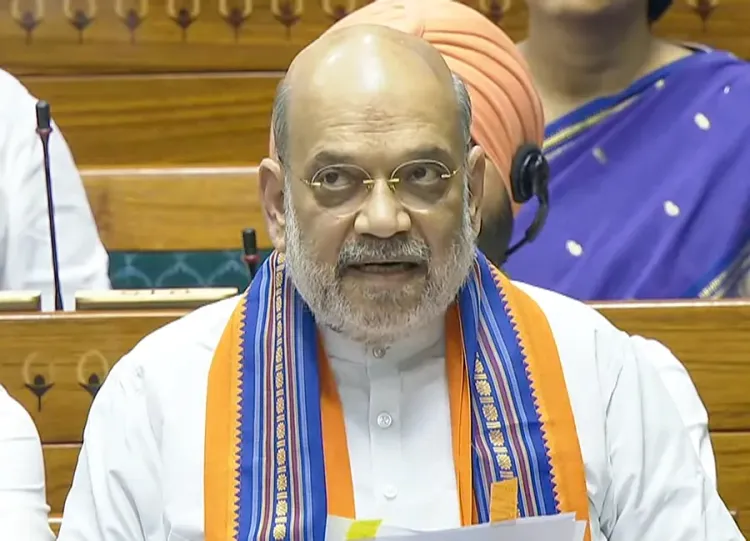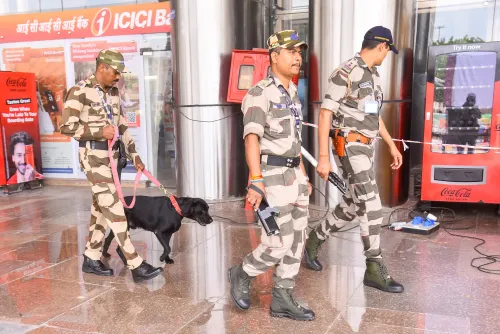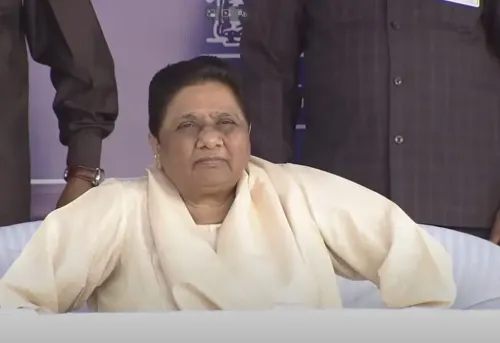How Are Amit Shah's Three Bills Aiming to Restore Integrity in Politics?

Synopsis
Key Takeaways
- Introduction of three bills aimed at restoring integrity in politics.
- Provisions for removal of leaders who are imprisoned for 30 days.
- Accused politicians can seek bail within 30 days of arrest.
- Historical context comparing past and current governance approaches.
- Impact of these reforms on public trust in leadership.
New Delhi, Aug 20 (NationPress) Union Home Minister Amit Shah, shortly after introducing three significant bills in the Lok Sabha on Wednesday, articulated that the intention behind these legislations is to uplift the diminishing morality in public life and enhance integrity in politics.
In a post on his social media, the Union Minister detailed the fundamental elements of the bills, emphasizing their potential to establish new standards of ethical conduct and integrity in public service, applicable even to the highest constitutional roles, including that of the Prime Minister and Chief Ministers.
The proposed legislation, which has been forwarded to the Joint Committee of Parliament for examination, includes regulations for the removal of the Prime Minister and Chief Ministers if they are detained for a period exceeding 30 consecutive days.
Amit Shah highlighted in his post on X that he has introduced a constitutional amendment bill in Parliament, ensuring that individuals holding constitutional positions such as the Prime Minister, Chief Minister, and ministers at both central and state levels cannot govern while incarcerated.
The legislation, once enacted through these three bills, will stipulate:
- No individual, while detained and imprisoned, can serve as Prime Minister, Chief Minister, or a minister of the central or state government.
- This bill incorporates a provision that permits accused politicians to request bail from the court within 30 days of their arrest. If bail is not granted within this timeframe, on the 31st day, either the Prime Minister or the Chief Ministers will remove them from their positions, or they will automatically become ineligible to carry out their responsibilities.
Amit Shah remarked that when the Constitution was drafted, its framers did not foresee a scenario where political figures would refuse to resign on moral grounds prior to arrest, a comment directed at AAP supremo Arvind Kejriwal, who has remained in office despite facing corruption charges and being imprisoned.
The Home Minister also referenced the regime of Indira Gandhi to criticize the Congress Party's tendency to cling to power and undermine democracy for personal gain.
“The nation recalls the period when then Prime Minister Smt Indira Gandhi, via Constitutional Amendment No. 39, conferred privilege upon the Prime Minister that prevented legal action against them,” he stated.
He juxtaposed this approach with that of the BJP government, wherein Prime Minister Narendra Modi initiated a constitutional amendment to ensure he is subject to the law.
“On one hand, we have the Congress's work culture, which elevates the Prime Minister above legal accountability through constitutional amendments. On the other hand, the Bharatiya Janata Party is committed to ensuring that our government’s Prime Minister, ministers, and chief ministers are accountable under the law,” he asserted.









